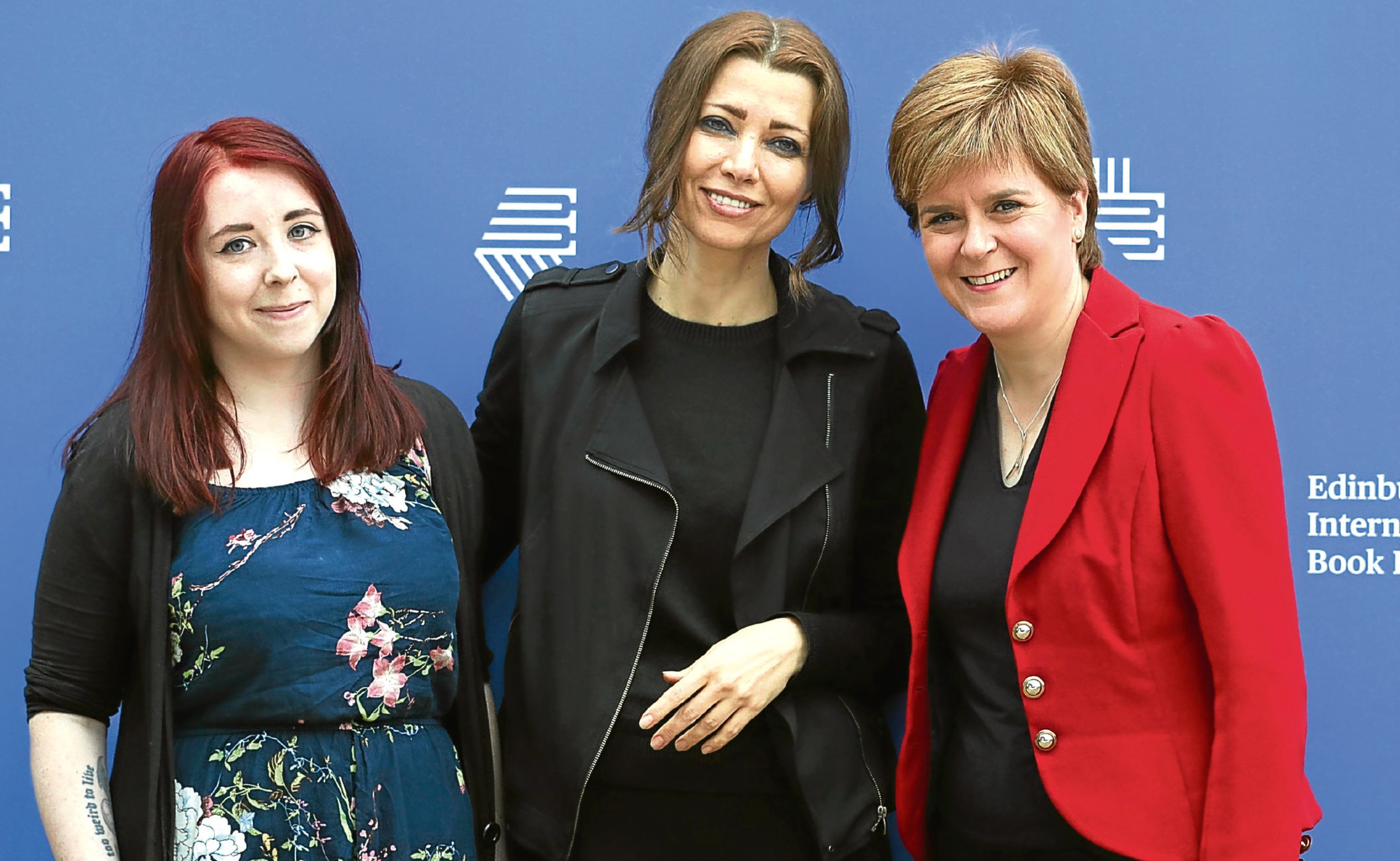If an English inquisitor had suggested to Nicola Sturgeon her party’s name had negative and ugly connotations, I wonder how she would have reacted. Based on past form, she perhaps would have blamed London, or possibly Westminster, for the way the word nationalism is perceived.
As it happened, though, Scotland’s First Minister was being quizzed by a Turkish author, at the Edinburgh book festival, and her response was frank.
Asked by Elif Shafak whether the term ‘nationalism’ could ever be benign, given how it attaches itself to the world’s most odious regimes and movements, Ms Sturgeon admitted the word is “difficult”.
“If I could turn the clock back, what, 90 years, to the establishment of my party, and choose its name all over again, I wouldn’t choose the name it has got just now. I would call it something other than the Scottish National Party.”
Nationalist is even worse than national for the SNP, and they go mad if Unionists wrongly call them the Scottish Nationalist Party. But nationalists they are if nationalism is what they want.
Of course, the aims of Scotland’s nationalists are, as Ms Sturgeon pointed out, far removed from those of other notorious nationalists, from the Middle East to the Balkans to Nazi Germany and apartheid South Africa.
And they don’t resemble the anti-immigration nationalists spreading across Europe, from France’s Front National to the Netherlands’ Party for Freedom, and the US.
But Elif Shafak is not the first to think aloud that Scottish nationalism is problematic. The mayor of London, Sadiq Khan, wrote this year (to howls of nationalist protest) that there was no real difference between voting for an independent Scotland and “trying to divide us on the basis of background, race or religion”.
Any group that defines itself by national identity is automatically alienating anyone who doesn’t share the same sense of nationhood, a dangerous game in a multi-cultural society. But the SNP is nothing if not deluded. Ms Sturgeon told the book festival crowd the SNP is inclusive, outward looking, internationalist, not at all inward looking or insular. It didn’t matter to the party where you came from – unless, she should have added, it was England.
For the issue with Scotland’s nationalists is not just their name but the way they pursue their nationalism. They might like to style themselves as civic, not ethnic, nationalists, but in their desire to sever Scotland from the rest of the UK, they need a foe. That, as every SNP campaign has made clear, is England or the English who live in Scotland (or the Scottish who live in Scotland but don’t support the SNP and are therefore anti-Scottish).
In order to make a convincing case for Scottish nationalism, the SNP must accentuate the differences between Scots and the rest of the UK.
In the SNP’s mantra that Scotland is a more tolerant and fairer society, presumably than England, the English are castigated as an inferior (if only morally) race. But much more unites than divides us, one of the main reasons why Ms Sturgeon has failed to further her nationalist cause despite devoting all her time in power to it.
There was nothing inclusive or outward looking about the nationalists’ attempt in 2014 to achieve independence. And, in fact, subsequent elections have been run on pretty much the same, xenophobic lines.
Those who disagree with the SNP over what is best for this country are denigrated as Quislings (Nazi traitors) by some nationalists. And there are party supporters who have advocated removing the vote from people who live in Scotland but are not Scottish. That doesn’t seem very civic to me.
The passions that surfaced in 2014 made Scotland an uncomfortable place to be. Despite our cherished democratic freedoms, many people were afraid to reveal their voting intentions, if they intended voting No.
Now the tide has turned against the nationalists, and their electoral infallibility has deserted them, they are doing what all parties do in a crisis. Discipline is disintegrating and internal fights are breaking out over how best to advance nationalism. Ms Sturgeon taking stock over her party’s name seems like the reflections of a politician who acknowledges she has reached as far as she can go. But it is not the SNP label that has held her back, it is the contents.
